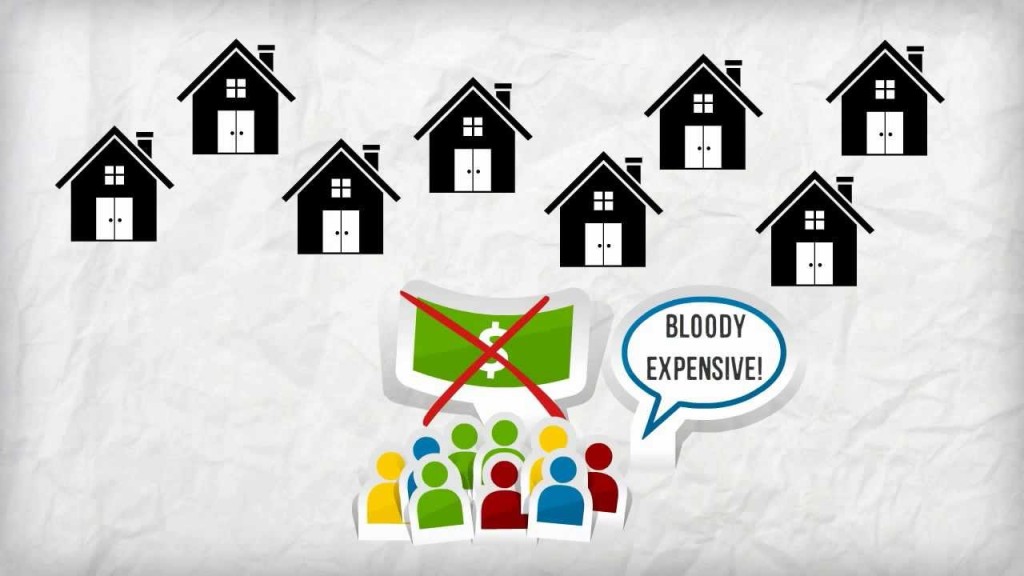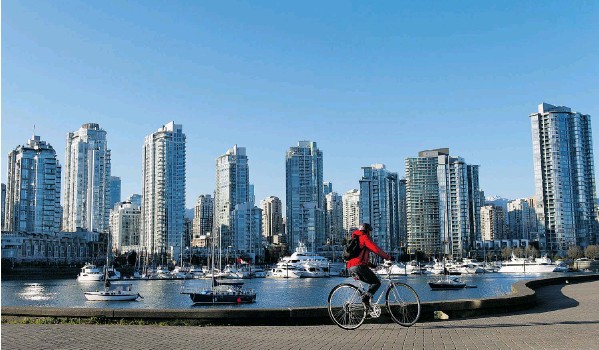
Why is talent (the young candidate in particular) choosing to leave the most beautiful city on the planet and moving away? This is a very unfortunate reality in the Vancouver lower mainland. The current real estate frenzy, driven by a few unscrupulous read estate agents and offshore fortunes, started the fuss. Everyday we hear more and more reports of homes selling for $1K to $1M over asking price. There doesn’t seem to be an end to it. The madness has finally got the attention of the city and the province and investigations are now underway. Fingers crossed that it isn’t too late on the talent front.
Are there any winners in all of this? Yes, most definitely Victoria and Kelowna.
Candidate Concerns
Although real estate prices may be impacting the Vancouver talent market more significantly than in other locales, affordable housing is not the only concern. The full spectrum of age, experience level and accessibility have all been considered and reviewed.
 Recent Glassdoor reports indicate the following employer stats –
Recent Glassdoor reports indicate the following employer stats –
- 48% do not see enough qualified candidates for open positions
- 29% do not see enough candidates when filling a position
- 20% inability to track factors that influence candidates to apply
- 51 % indicate candidates have grown wary of emails from networking sites and respond at a much lower rate
- 47% indicate candidates respond to recruiter emails at a much lower rate
- 44% indicate candidates respond to recruiter phone calls at much lower rate
- Nearly a third (32%) of hiring decision makers say their company’s approach to advertising jobs is among the most outdated elements of their company’s recruitment process and needs a major upgrade
The top 5 reasons hiring managers think candidates apply for jobs include:
- Salary and compensation (51%)
- Type of work (50%)
- Company reputation and brand (36%)
- Location and length of commute (27%)
- Career advancement opportunity (25%)
 More reading
More reading
Hiring Managers Caution Job Candidates
Why Companies Aren’t Getting the Employees They Need
In more ways than one, this quote very succinctly makes an excellent point.
“If you’ve got a talent, protect it.”
~Jim Carrey, Canadian actor, comedian, impressionist, screenwriter, and film producer
~~~~~~~~~~~~~~~~~~~~~~~~~~~~~~~~~~~~~~~~~~~~~~~~~~~~~~
Housing costs driving millennials away
15 Mar 2016 | The Vancouver Sun |KATIA DMITRIEVA | BLOOMBERG
Kevin Oke had a Vancouver dream job, working as lead designer at a video game company whose clients included Atari and Ubisoft, but he still couldn’t afford a house. So he left his native city.
Rising housing costs are putting Vancouver’s growth at risk as the city hemorrhages young workers employed in technology and new media. The net number of people age 18 to 24 added to Vancouver’s population was the lowest ever last year at 884, according to Statistics Canada.
“Housing in Vancouver is insane — it was insane when I left and it’s more insane now,” said Oke, who co-founded educational-software company Llama-Zoo Interactive after moving to Victoria in 2014. “If you’re trying to do the startup thing full-time, it would have been really difficult with all the expenses.”
Oke, now
Vancouver was ranked the third-least-affordable housing market in the world this year, after Sydney, Australia, and Hong Kong, by consulting firm Demographia. It was the eighth straight year the city occupied a top-three spot.
The price of a typical home in greater Vancouver rose 21 per cent to $775,300 in January from a year earlier, according to the city’s real estate board. That compares with a 14 per cent increase to a $1.1 million US median in San Francisco, according to residential-d ata website Zillow. Vancouver home prices have risen partly as a result of foreign buyers — from China and elsewhere — investing in property.
Rentals are hard to come by, and just as unaffordable. The vacancy rate of 0.8 per cent is one of the lowest in the country, and the average monthly rent of $937 for a bachelor suite is tied at highest with the cost in Toronto, according to the Canada Mortgage and Housing Corp. Rents for newly-built units and renovated basement suites are pricier.
As housing costs have risen, so have the number of people in their 20s and 30s leaving the city. The net number of people age 18 to 24 added to Vancouver’s population was the lowest ever last year at 884, and the number of 25- to 44-yearolds decreased by about 1,300, the biggest decline since 2007, according to Statistics Canada.
 That’s led startup leaders, including Ryan Holmes, founder of Vancouver-based Hootsuite Media Inc., to lament the loss of talent.
That’s led startup leaders, including Ryan Holmes, founder of Vancouver-based Hootsuite Media Inc., to lament the loss of talent.
Image: RICHARD LAM/PNGR
“Unaffordability is emptying Vancouver of one of its most valuable assets — young people who grew up in the city and who are invested in it,” Holmes wrote in a Financial Post op-ed in February.
Vancouver is often likened to Silicon Valley, San Francisco and Seattle for its startup scene. The city’s tech industry employs more people than oil and gas, forestry and mining combined, and it’s set to help lead economic growth among Canadian cities for the next four years, according to the Conference Board of Canada. Mayor Gregor Robertson created an agency to tackle the housing crisis, with a goal of delivering 2,500 low-cost units by 2021, among other targets.
The CMHC is also in the midst of tracking foreign investors in Canada’s top cities, including Vancouver, to determine their role in home price growth. The housing agency has joined brokerage Sotheby’s International Realty Canada inciting offshore buyers as pushing up high-end home prices and demand.
That driver of growth may evaporate as talent exits Vancouver, said Christine Duhaime, founder and executive director of the Digital Finance Institute, which supports Canada’s financial-technology industry. She’s having a tough time filling a 2,000-square-foot open-concept office for startups in Vancouver’s historic Gastown neighbourhood she opened this year because potential tenants say they’re leaving the city for Victoria, Kelowna and as far away as London and Singapore.
“We’re banging our heads on the wall,” she said. “Why aren’t they staying? Because it’s too expensive. Vancouver is going to lose its tech edge.”
One of the main recipients of the brain drain is Victoria — its Tectoria nickname speaks to the trend — which opened a tech incubator in 2014 to accommodate the growth of what’s now a $4-billion industry in the city employing about 23,000 people. Billionaire investor Terry Matthews has injected capital into startups on Vancouver Island.
“Interest from Vancouver has hit an all-time high for us,” said Dan Gunn, head of the Victoria Innovation, Advanced Technology and Entrepreneurship Council. “People in Vancouver are starting to look around and realize, ‘I may not be able to afford a home here.’”
Kelowna is another city seeing a recent flow of young housing refugees from Vancouver. The town of 123,000 is building a six-storey innovation centre for startups and Accelerate Okanagan, an organization that supports local tech companies.
Karen Olsson, chief operating officer for Kelowna-based software company Community Sift, says it’s getting easier to recruit people from bigger cities because they’re drawn to a lifestyle that includes farm-to-table dining, hand-roasted organic coffee and local beer.
“Kelowna is much more affordable — it’s a big piece of the sell for sure,” Olsson said. When she and her husband moved to Kelowna in September, they traded a 2,700-square-foot $800,000 house in Squamish for a two hectare farm in Kelowna that was $200,000 less and closer to downtown.
Now that he’s in Victoria, Oke said he misses Vancouver’s “shiny bustle” — until he leaves his apartment, a five-minute jog from the beach, and walks only 10 minutes to his office in space above a coffee shop that also houses a dozen other startups.
“I don’t know how many more good things I want to say about Victoria,” he said after ticking off myriad benefits of living in the city. “Then more people will come and push housing prices up.”
